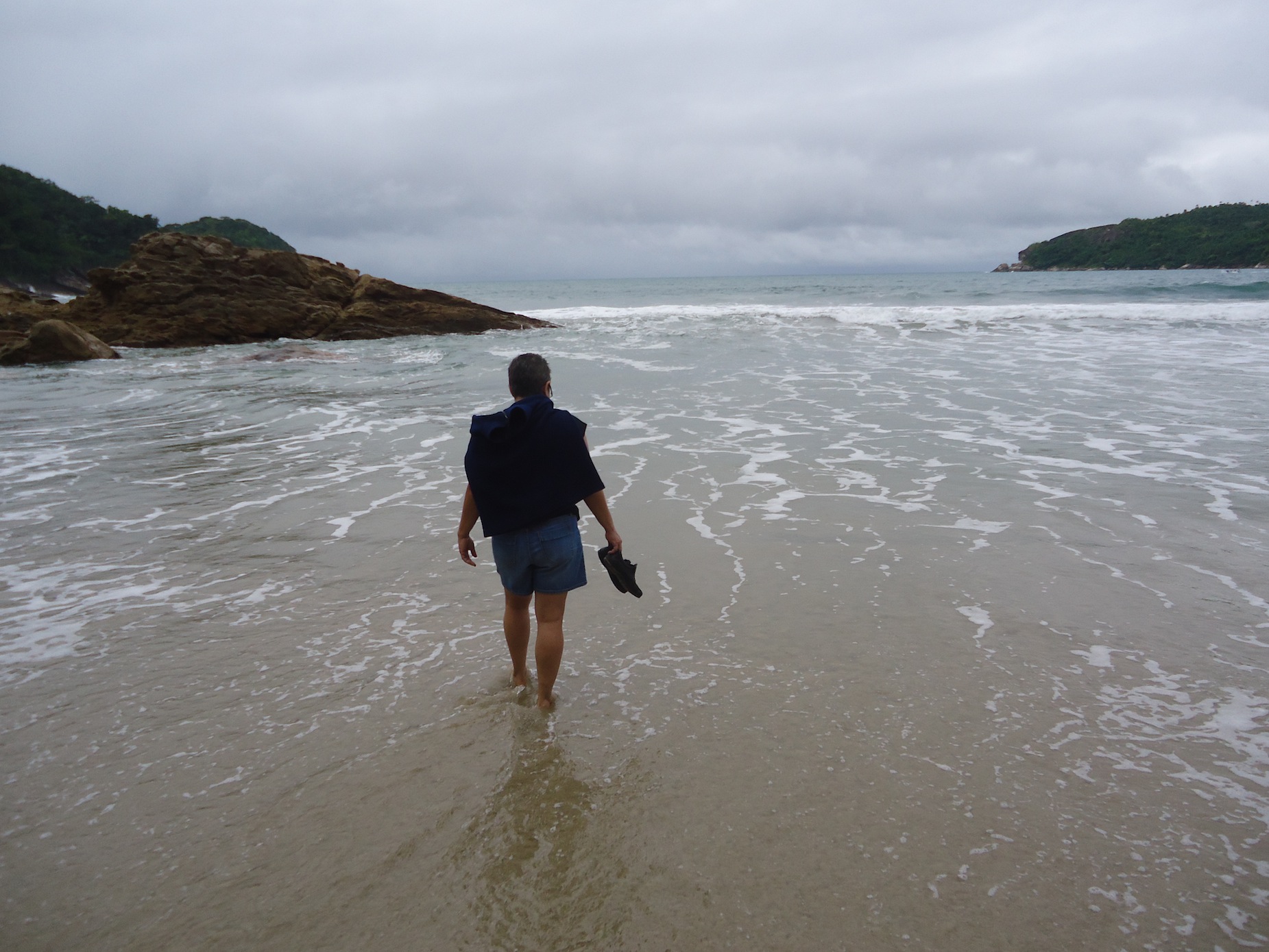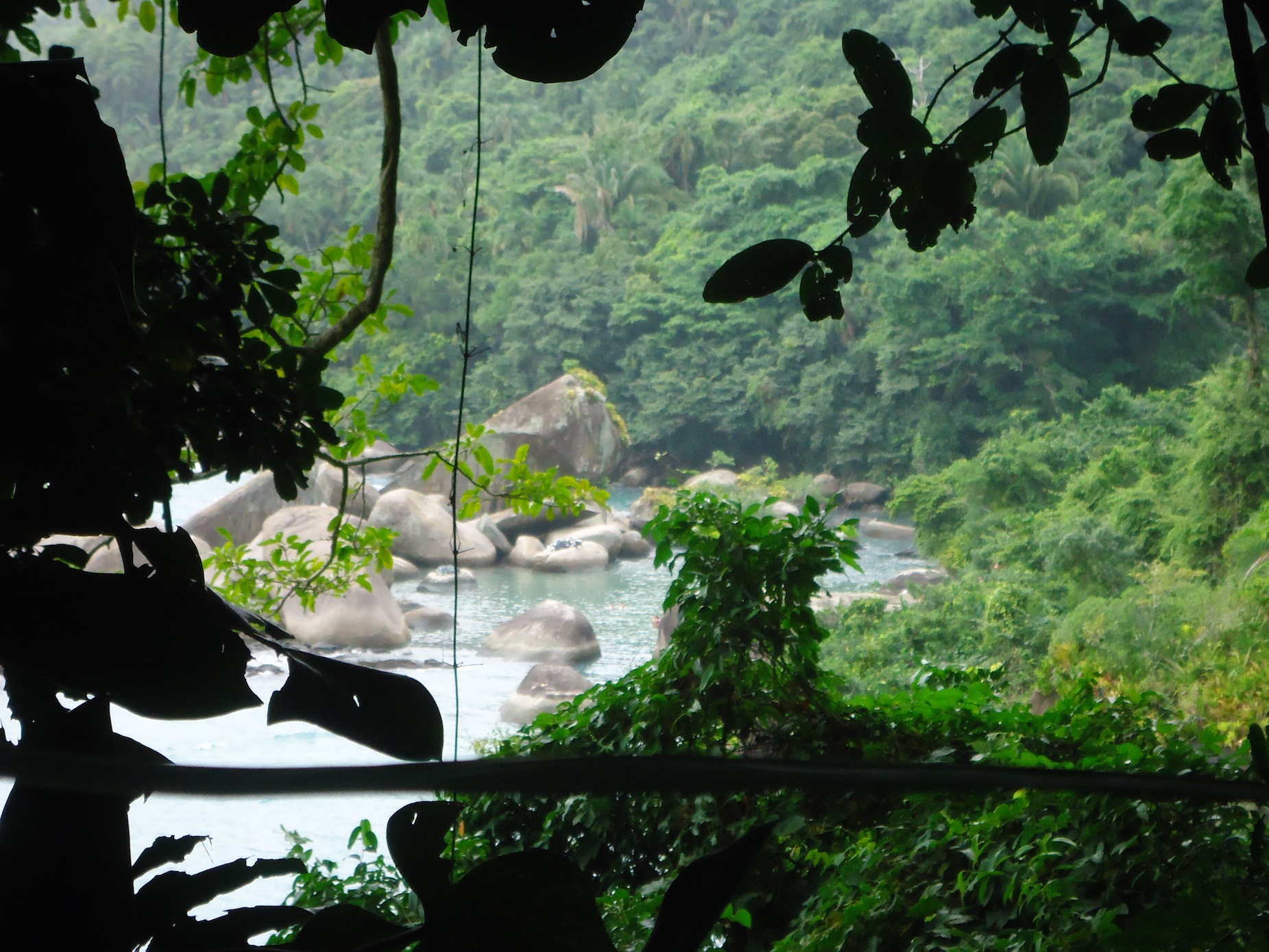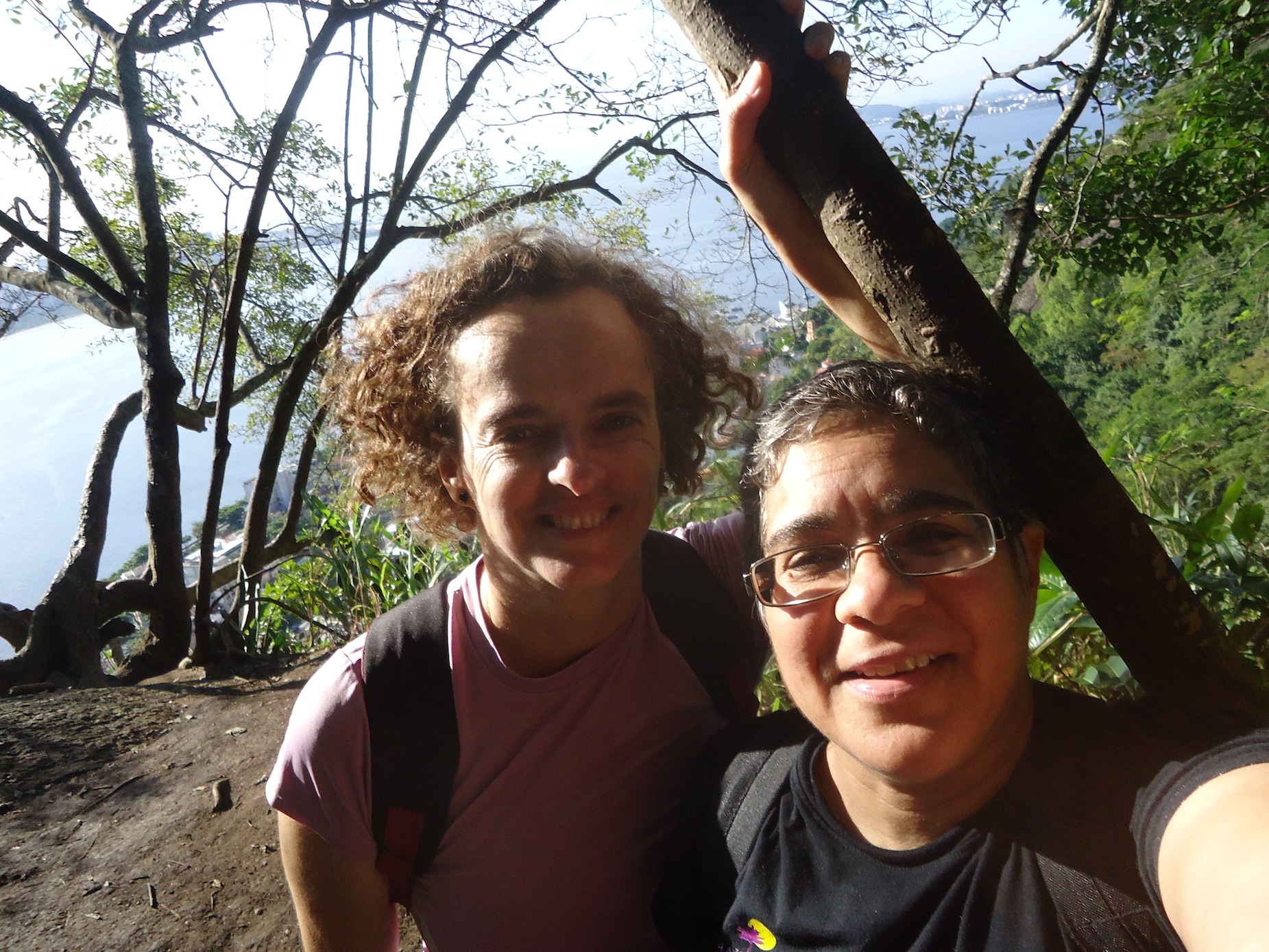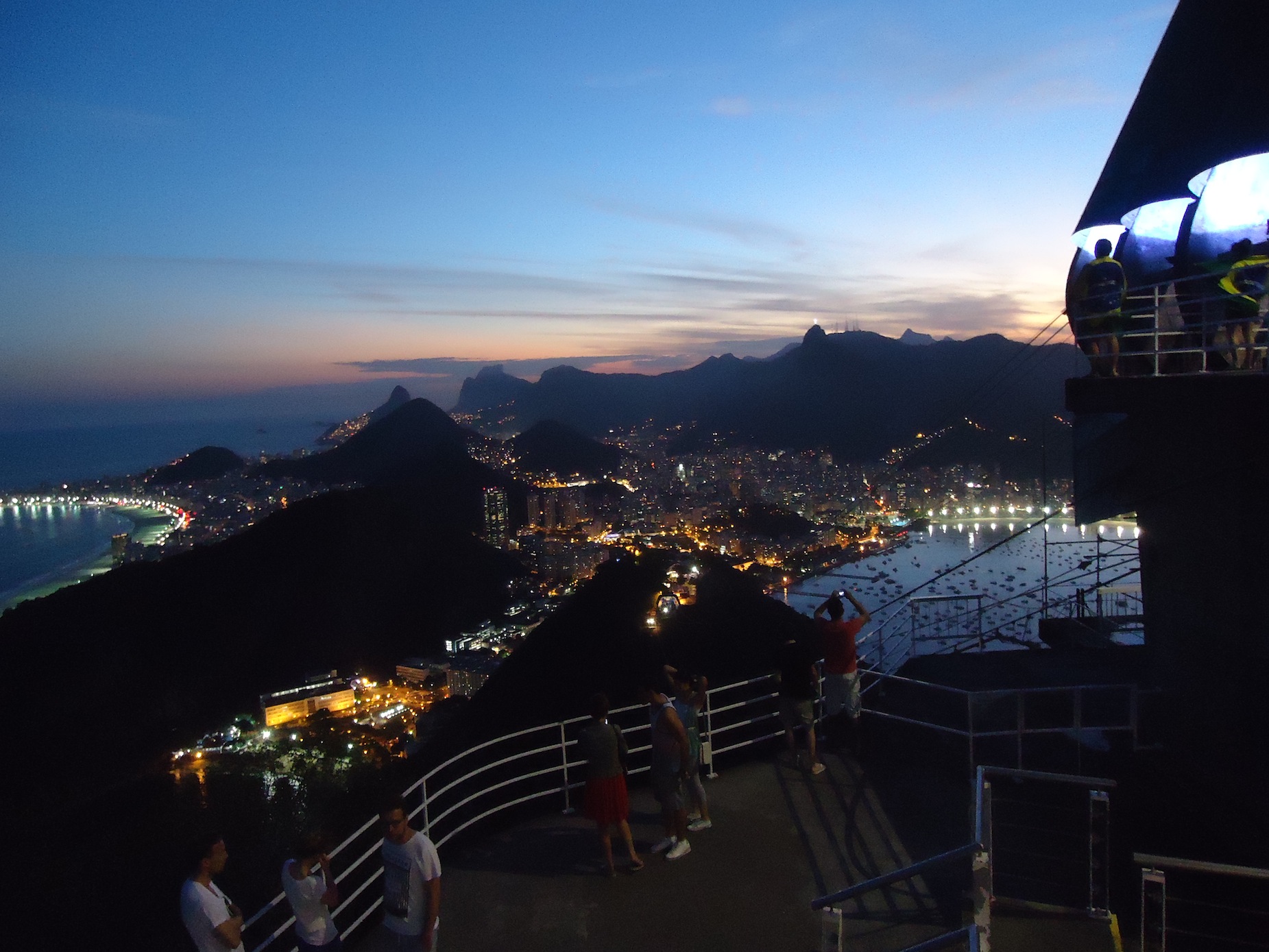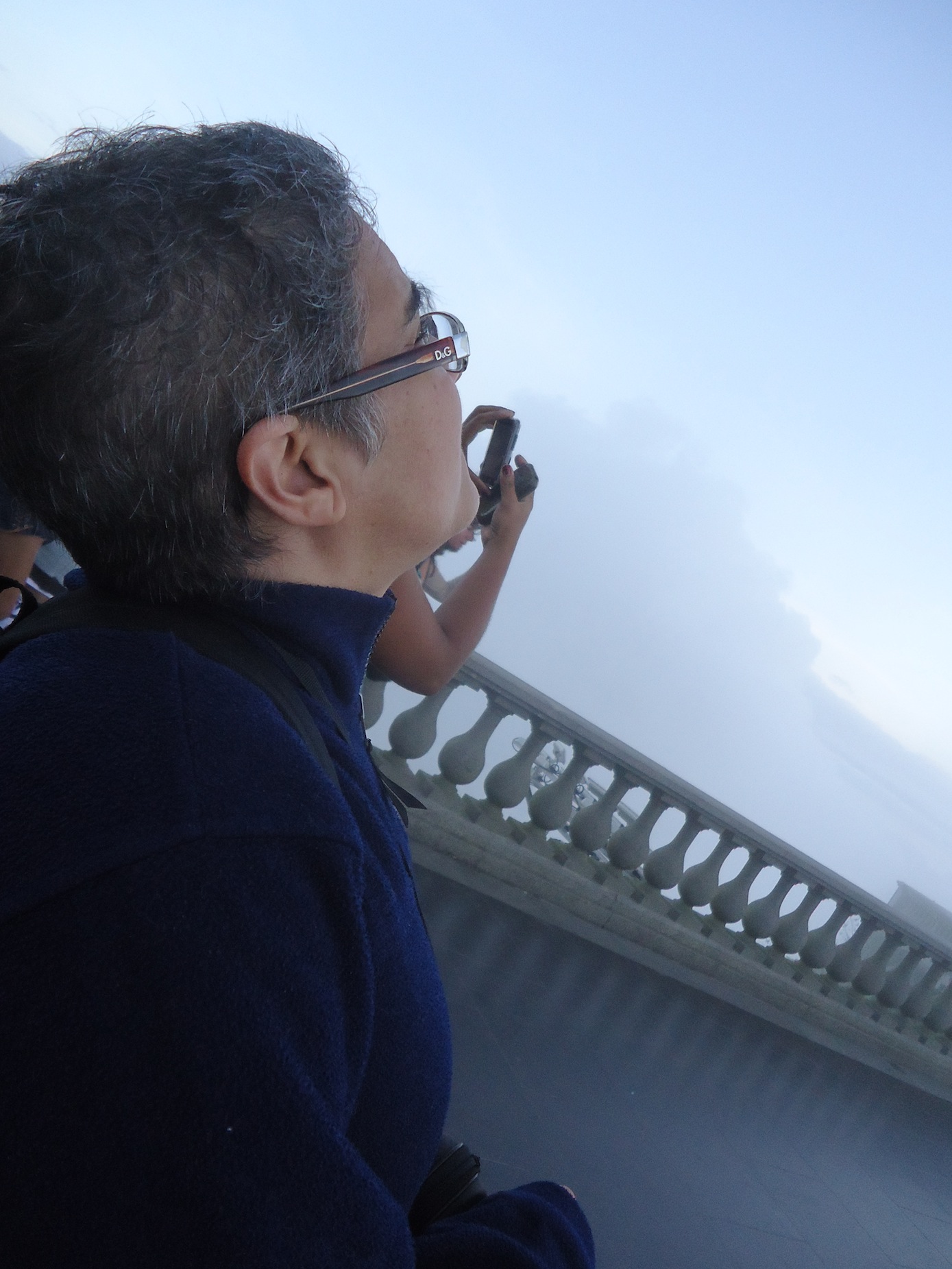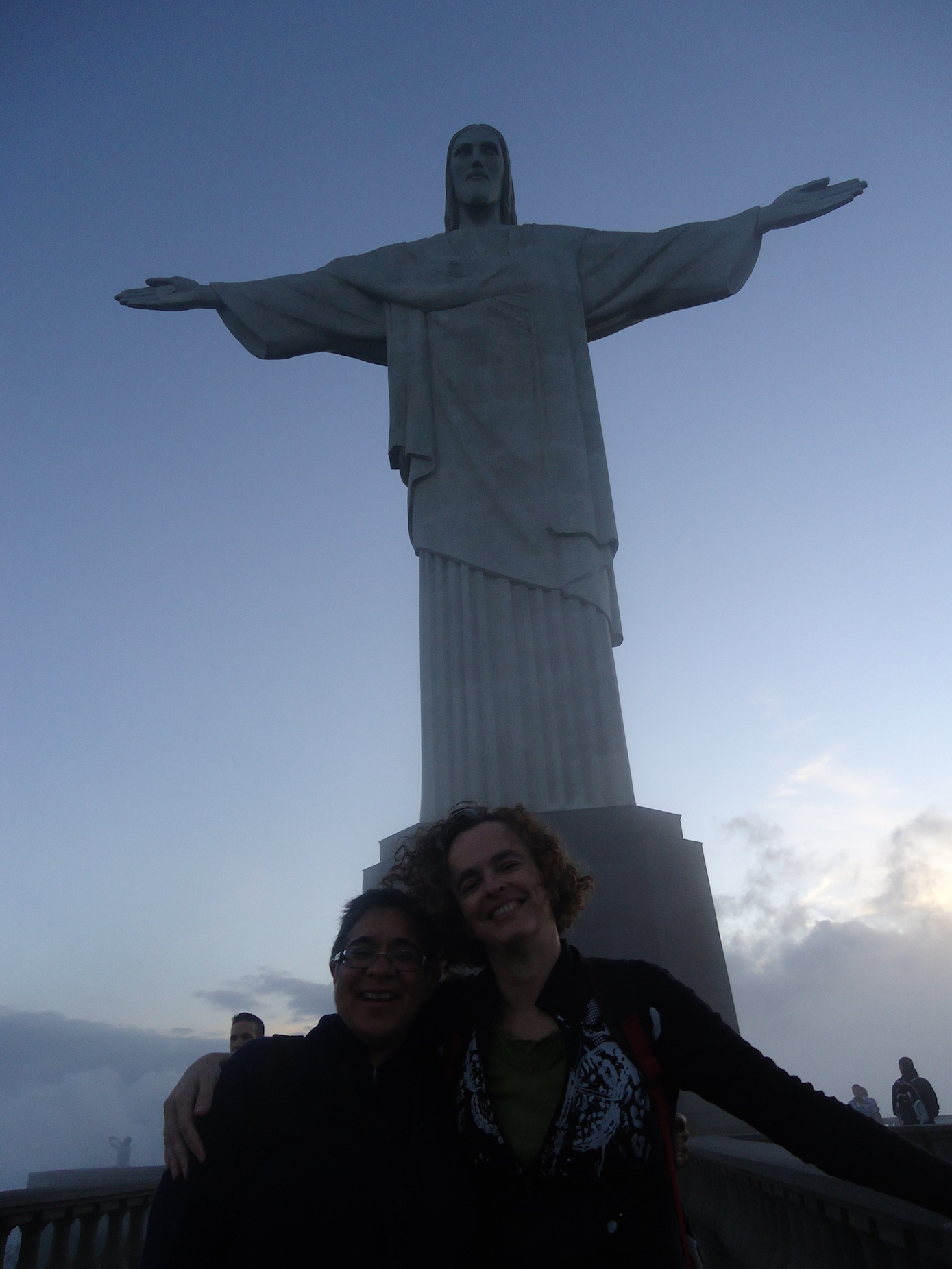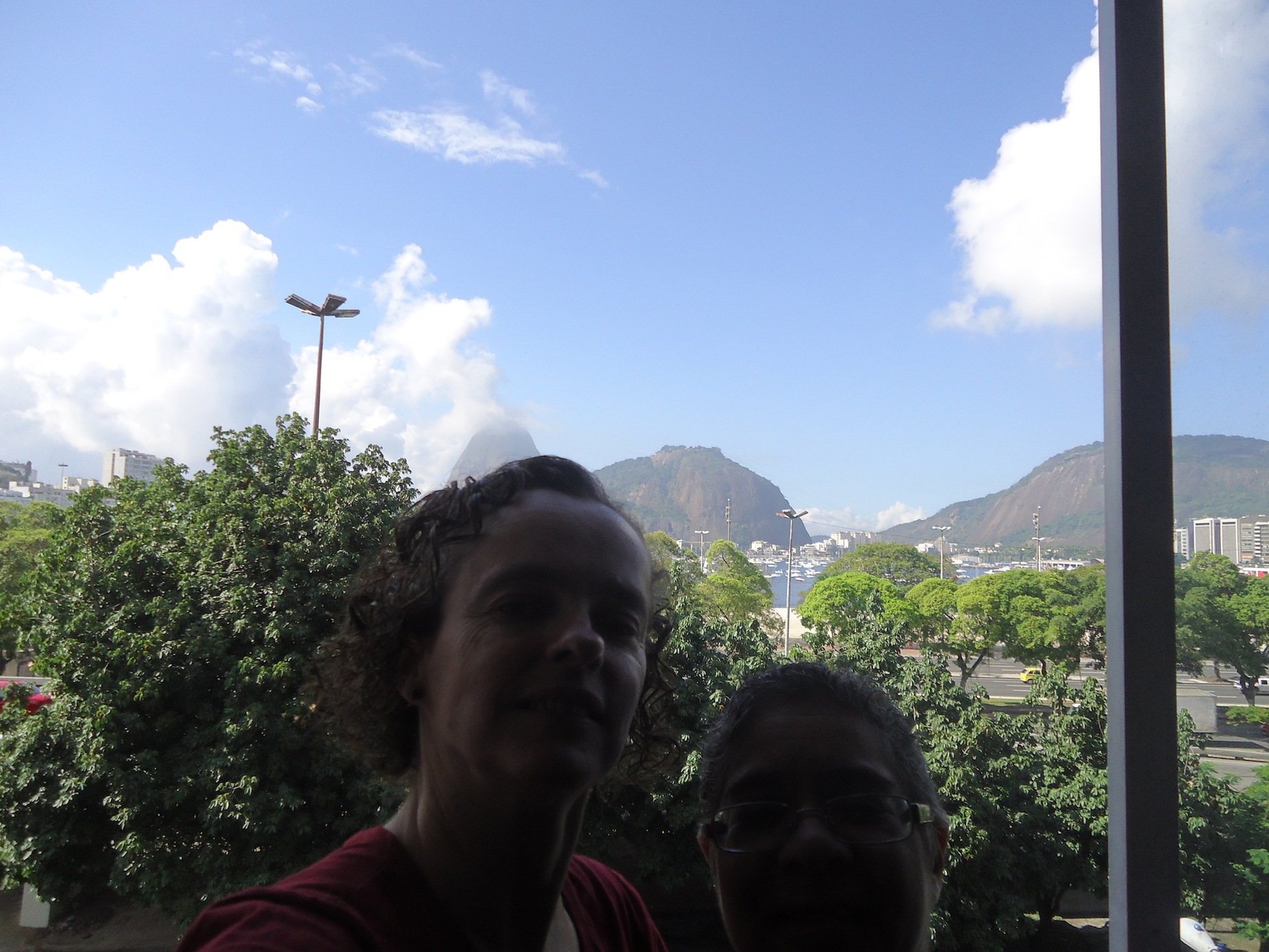Brazil, again
It's long past time for me to write about Brazil. I spent almost 3 weeks there in May and it changed my life. I'm not certain where or how to start, but the time that I spent there with Marta and her family has taken root inside me and has changed me somehow. It's made me more silent, it would seem, but also made me more contemplative. As I slide into my fifties, it helps to bring the ends of my life together, knitting the past with the present in ways I had no idea would ever be possible when I stood weeping in the parking lot of Pearson College nearly thirty-three years ago. But let me begin at the beginning.My journey to Brazil began on the day I took my Music GCE O-level, though I didn't know it then. It's a day I can remember almost from beginning to end. It started with me sitting at the front room window looking out at the rain pouring over the two huge sisal plants in our front yard, waiting for my mother, or for someone anyway, to take me to my exam. I don't remember anything about the exam myself. All I remember is that everyone else I was close to had finished their exams, had finished their high school life, had got past studying and were thinking about the prom and what came after, and I had a morning exam. The morning was dark, almost wintery, and the rain was hard and real, and the air outside was green with it.I remember nothing about the exam--not where we sat it, though I want to imagine it was the QC music room and not Epworth Hall, where all the other exams had been taken in rows of desks laid out precisely by a math teacher with a yardstick--nor what was on it, but I do remember that when I was collected from the exam it was by my mother who was bursting with excitement. I'd got the scholarship. The scholarship, the one to the United World Colleges. Not to the one I was dreaming about; not the castle in Wales, but another scholarship. This one would take me to Canada, to Vancouver Island, a place I'd never really been aware of. One didn't look west from the Bahamas in 1979. One looked east, across the Atlantic. One looked to England, or maybe, occasionally, north. To the east coast of the USA or the centre of Canada. If one had to. I had to consult a map to find it. Not Vancouver, a city I had heard about; Vancouver Island. I had never know there was an island there. And when I looked at it on a map, I didn't think it was much of an island. More like a small continent, it seemed.So anyway, I went to the United World College on Vancouver Island. Named, fittingly enough then, after Lester B. Pearson, before his name was on Toronto International Airport, it was the first United World College to be purpose built, and the Canadians who built it had thought of everything. Like how many students from different countries to put in a single room. Like how the campus was laid out. Like what we were and were not allowed to do. A grand experiment in the middle of the temperate rain forest of British Columbia.My trip to Brazil began on Vancouver Island at the United World College of the Pacific, where I met Marta. We were friends in our first year, and roommates in our second year, and she introduced me to Brazil, another place I was vaguely aware of but hadn't really imagined into reality. When we left Pearson together, heading back to our respective countries, we promised to visit one another.She made good on her promise in 2001, back when she was pregnant and newly remarried to a man who is a doctor and an inventor. They were in the USA working on selling the computer mouse he had developed, something which, unlike every other mouse (or trackpad) on the market then and now, was designed to fit and support the human hand, and to get to where they were going (California?) they were passing through Miami. Only a hop and a skip to Nassau, and they came to visit, Marta and Julio and Julio's daughter Barbara and, in Marta, their not-yet-born son David.Last year Marta made me make good on my promise, and so this year I spent two and a half weeks in Brazil.My time there left me with questions and inspirations. Questions such as what, fundamentally, was different between Brazil and The Bahamas that left me feeling hopeful while I was in the first country, but close to despair when at home? It cannot be ideas of corruption, or poverty, or political equality; on paper at least, The Bahamas has Brazil beat in all of those areas. Questions like how did a country that was founded, as ours was, on the institution of slavery, raise up citizens who had the audacity to imagine the unimaginable--like a gigantic statue of Jesus Christ erected on top of an already-spectacular mountain, or a cable car linking two equally spectacular peaks when ours has trouble imagining that it needs even one national university? The answer, perhaps, lies in the recognition in Brazil that at least some of its citizens are humans and are worth all the amenities and wonders that are afforded to humans everywhere (I don't think we have quite come to the same conclusion here in the Caribbean). And inspirations like the fact that out of a country that was ruled by right-wing dictatorships for much of the twentieth century could come the kind of democratic upwelling that marked the end of that century and the beginning of a next—a sign that regeneration is possible when all hope is lost.
